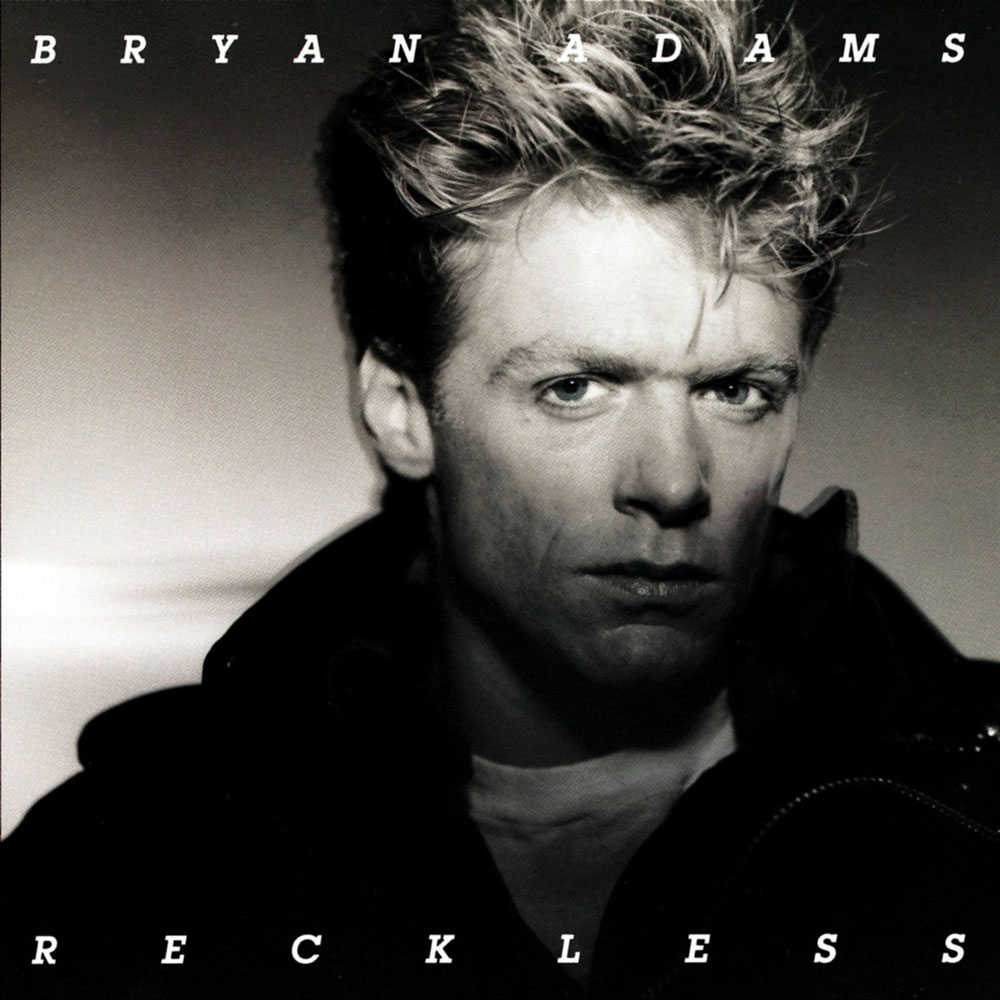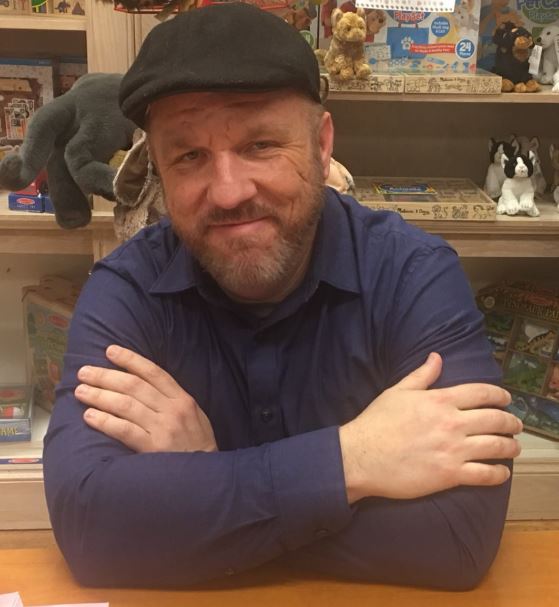‘Reckless’: Songwriter Jim Vallance Discusses Working with Bryan Adams
All the latest guitar news, interviews, lessons, reviews, deals and more, direct to your inbox!
You are now subscribed
Your newsletter sign-up was successful

In the context of songwriting partnerships, few teams have been as long-lasting — or as successful — as that of Jim Vallance and Bryan Adams.
Since being introduced by a mutual friend in a music store in 1978, Vallance and Adams have written hits that appear on Adams’ albums You Want It, You Got It; Cuts Like a Knife; and the 1984 monster, Reckless, which sold more than 5 million copies in the U.S. alone.
Adams will celebrate the 30th anniversary of Reckless in November with a four-disc, super-deluxe reissue package that includes bonus-track demos recorded in Vallance’s basement studio in 1983 and '84.
Over the years, Vallance has continued to flex his songwriting muscle, penning hits with Aerosmith, Ozzy Osbourne, Scorpions and Lita Ford, to name just a few.
I recently spoke to Vallance about the Reckless sessions, his time working with Adams and his upcoming projects.
GUITAR WORLD: When you think back to the Reckless album, what’s the first thing that comes to mind?
Mostly, I remember how much work we did. Bryan and I got together in my basement studio every day for a year ... noon 'til midnight. Some days were more productive than others, but we always put in the time and did the work.
All the latest guitar news, interviews, lessons, reviews, deals and more, direct to your inbox!
What were those songwriting sessions like?
Bryan and I had a daily routine. He would arrive at noon, we'd have a sandwich and a cup of tea and then we'd go downstairs and get to work. We'd start by deciding if we were going to write a fast song or a slow song and then we'd set up a "drum loop" for inspiration. Usually, Bryan would play guitar and I'd play bass or piano. We'd jam for hours until one of us played or sang something interesting. Then we'd spend time fleshing out the idea or we'd jam some more until another idea materialized. We repeated the routine every day for months. It was always productive. There were very few wasted sessions.
I’d like to get your thoughts on a few tracks from Reckless. "Run to You."
"Run to You" was written for our producer friend Bruce Fairbairn. He needed a song for Blue Oyster Cult. They didn't like the song, so Bryan recorded it himself.
"Heaven."
"Heaven" was written for the soundtrack of a film called A Night in Heaven. It was a dreadful film, but we got a decent song out of it!
"Somebody."
"Somebody" was one of those songs where we jammed for a few hours until something happened.
Bryan has often mentioned the sexual references in “Summer of '69.” Can you tell me the real story?
Bryan and I were talking about it recently. We were both in the room when "Summer of '69" was written, yet we have very different recollections about what inspired the song.
I remember when we wrote the lyric I was thinking about all of the things that had happened to me during the summer of 1969: first girlfriends, first bands, lots of great music on the radio. Think about it … you're 17, you’re a budding musician and there's new music being released by the Beatles, Creedence Clearwater Revival, Jimi Hendrix, Johnny Winter and the Band. Not to mention Woodstock!
What role (if any) did you play in the recording process for the album?
I avoided the studio during the Reckless sessions. To be honest, I would have liked a bigger role, but if I'd been in the control room with Adams and [Bob] Clearmountain [producer], there would have been "too many chefs." My suspicions were confirmed a few years later during the Into the Fire sessions.
I arrived at the studio one day when they were recording guitars. I made a fairly innocent comment about the guitar sound and Bob "lost it." He went nuclear on me. To his credit, he apologized a few minutes later, but my point is, it can get tense in the control room. Sometimes it's better to stay away.
Can you tell me something that not many people know about the album?
I attended Tina Turner's vocal session for "It's Only Love." As soon as she started singing, my heart sank. Our track was in the wrong key for Tina's vocal range! I thought we'd blown it, but Tina and Bryan tried a few things. They nudged the melody up a third and suddenly, we were back in business and Tina nailed it! What a thrilling moment that was. It was very exciting to witness.
How did you get started in songwriting?
Blame the Beatles. I was 11 when I saw them on television and knew right away that I wanted to be a musician. I started playing drums and guitar, but songwriting didn't happen until I was 15 or 16. I had an uncle who wrote songs, and that helped humanize it for me. I realized you didn't have to be a Beatle. Anyone could have a go at it.
You mentioned the process you used when you wrote with Bryan. Was this the same for some of your other collaborations? Namely Aerosmith, Ozzy, Lita Ford, Scorpions?
When I was working with Bryan in the 1980s, we didn't have any time constraints. We just kept writing until we had enough songs for an album. If it took a year, like it did with Reckless, then it took a year. Plus, we lived near each other so getting together was easy.
It was different with artists like Aerosmith. They'd come to Vancouver or I'd go to Boston. There were also significant costs involved (flights, hotels, rental cars, restaurants) so the record company expected results. I was under a lot of pressure to deliver album-worthy songs, but I didn't mind. In fact, deadlines can be quite inspiring. It's a bit like school, where the teacher says, "I want a 20-page essay by Friday." You don't have a choice. You just do it or you get a failing grade. People don't know this, but songwriters don't get a salary. We only get paid if the album sells, and that's assuming your song makes it on the album in the first place!
What projects are you working on right now?
A few years ago I decided I only want to write with Bryan. I've done the 50-artists-a-year thing and it's a recipe for burn-out. I don't want to do that anymore. With Bryan, it's still a lot of work, but we know when to take a break. We pace ourselves. Bryan has three albums on the go. He's just released an album of cover songs (Tracks Of My Years) which includes one new Adams-Vallance original, "She Knows Me."
In November, Bryan's releasing a 30th anniversary edition of Reckless with seven bonus tracks. Six of the bonus tracks are Reckless-era demos; recorded in my basement studio in 1983 and '84. We remixed them from the original 16-track tapes, but we didn't replace or re-record anything. It's me on bass, drums and keyboards, Bryan on guitar and sometimes Keith Scott playing lead. They're raw demos, never intended for release.
But the project I'm most excited about is an album of all-new material, hopefully ready for release in 2015. I think it's our best songwriting since Reckless. One of our heroes, Jeff Lynne, is producing. It's such a thrill working with Jeff!
James Wood is a writer, musician and self-proclaimed metalhead who maintains his own website, GoJimmyGo.net. His articles and interviews are written on a variety of topics with passion and humor. You can follow him on Twitter @JimEWood.
James is a guitarist and freelance writer who's interviewed some of the biggest names in music. He is the author of four books and his writing credits include work for Guitar World, AXS and Yahoo! as well as for his hometown newspaper where he writes on a variety of topics with both passion and humor. As a guitarist, he's performed everywhere from local bars and nightclubs to some of the biggest stages in front of thousands of music fans.

